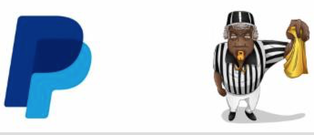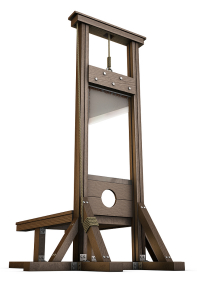 PayPal has agreed, without admitting any guilt, to pay $7.6 million to the U.S. Government to settle allegations that it failed to block transactions to Cuba, Sudan, and Iran. Read the announcement here. PayPal fessed up about what it had done by filing a voluntary self-disclosure. It did not wait to be caught, which may be particularly smart for a financial institution. OFAC tends to be brutal with financial institutions that violate US sanctions laws. It is difficult to tell if OFAC went easy on PayPal. Seven million dollars for any financial institution is a drop in the bucket, especially when, as here, a company repeatedly violates sanctions laws for several years. There were 486 transactions in all! On other hand, the total money spent on these 486 transactions was just $43,934. OFAC does not reveal whether these were cash transfers or purchases of consumer products. At about $90 a pop, maybe people were just buying small kitchen appliances or cheap Broadway tickets. If so, OFAC's main gripe may have been with the intended recipients. What really ticked off OFAC was that PayPal processed 136 transactions to and from a Specially Designated National, someone on a prohibited parties list that all transactions must be screened against. That the penalty was not all it could have been is at least partially due to PayPal's cooperation with OFAC's investigation. It also helped that PayPal replaced its compliance personnel. Unfortunately, OFAC's press release does not specify whether PayPal was able to use its own services to pay the fine. One wonders if the U.S. Government was required to pay a processing fee or wait a week to receive its funds.
0 Comments
How do you appeal a penalty from the Bureau of Industry and Security (BIS) for perceived violations of the Export Administration Regulations (EAR)? Companies and individuals rarely challenge the BIS, preferring to negotiate a settlement. The courts get involved generally only if there are criminal indictments. But there is a mechanism to challenge the BIS when it imposes civil penalties, and everyone, including the Bureau of Industry, agreed that would be done by appealing to the United States Court of Appeals for the District of Columbia Circuit (the DC Circuit). You may not have heard of the DC Circuit, but it is one of our nation’s most influential courts because it directly decides appeals from federal agencies, skipping an appellant’s need to first go through a federal district court.
That arrangement/hierarch, however, was revised in Micei International vs. Department of Commerce, 613 F3d 1147 (C.A.D.C. 2010). The BIS imposed on Micei a $125,000 fine and a five-year suspension of export privileges, and, following the BIS’s instructions, Micei appealed to the DC Circuit. Apparently on its initiative, the DC Circuit decided that, because of the Export Administration Regulations convoluted history and questionable legitimacy (and thanks to a recent amendment to the regulations that this case triggered), it had no jurisdiction over the appeal, and transferred the case to the federal district court. Why is this important? Well, there is the issue of finality. Having a district court decide a case adds another level of adjudication and thereby increases the amount of time and money it will take to finally decide an export penalty case.  Ok, so a guillotine may be just slightly over the top, but it is undeniable that the federal government is enforcing trade with extreme rigor, as seen from our survey results of penalty cases just from the past month. You can see the results from the table we prepared (see below) which captures only a small percentage of recent penalty cases. The agencies involved are the US Department of Justice, Office of Foreign Assets Control, Securities and Exchange Commission, US Department of State, and the Bureau of Industry and Security. Not shown are the import penalty cases imposed by US Customs and Border Protection, the FDA, and other agencies. Adding import penalty cases (if federal authorities ever released that information) would stretch this table to several pages. The penalty amounts total about $400 million, but do not and cannot reflect all the real costs that a violator company must shoulder to deal with compliance emergencies. |
Oscar Gonzalez
Principal and a founding member of GRVR Attorneys. Archives
September 2016
Categories
All
|
- Home
- Who we are
-
Our Practice
- Customs and Import
- 301refunds
- Export
- Litigation
- Section 232 and 301 Tariffs
- Outsource Your Classification
- CBP Audits
- Fines, Penalties, Forfeitures, and Seizures
- Customs Brokers
- C-TPAT >
- Foreign-Trade Zones
- Antidumping and Countervailing Duties
- Intellectual Property RIghts
- Foreign Corrupt Practices Act
- Manifest Confidentiality
- Contracts and Incoterms
- False Claims Act and Whistleblower
- Blog
- Resources
- Calendar and Events
- Best Customs Broker Exam Course
- Contact
 RSS Feed
RSS Feed
